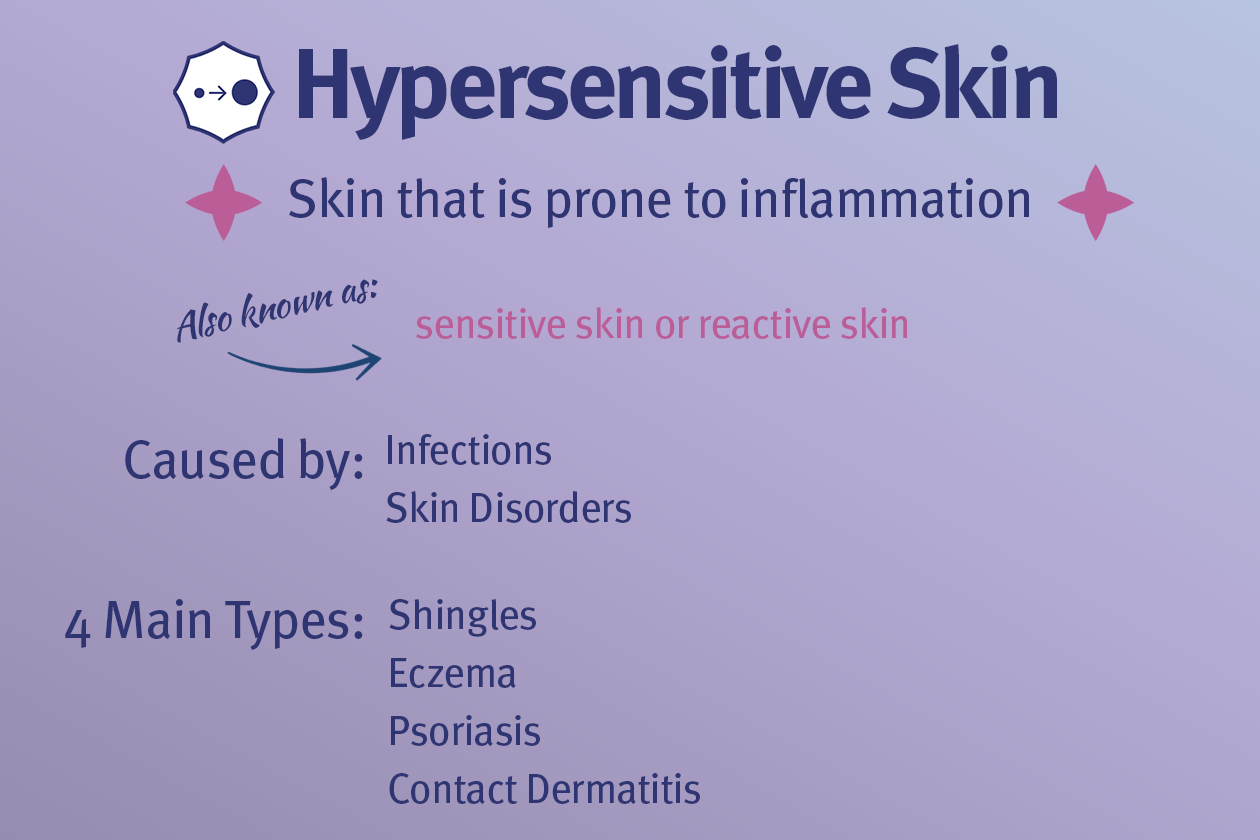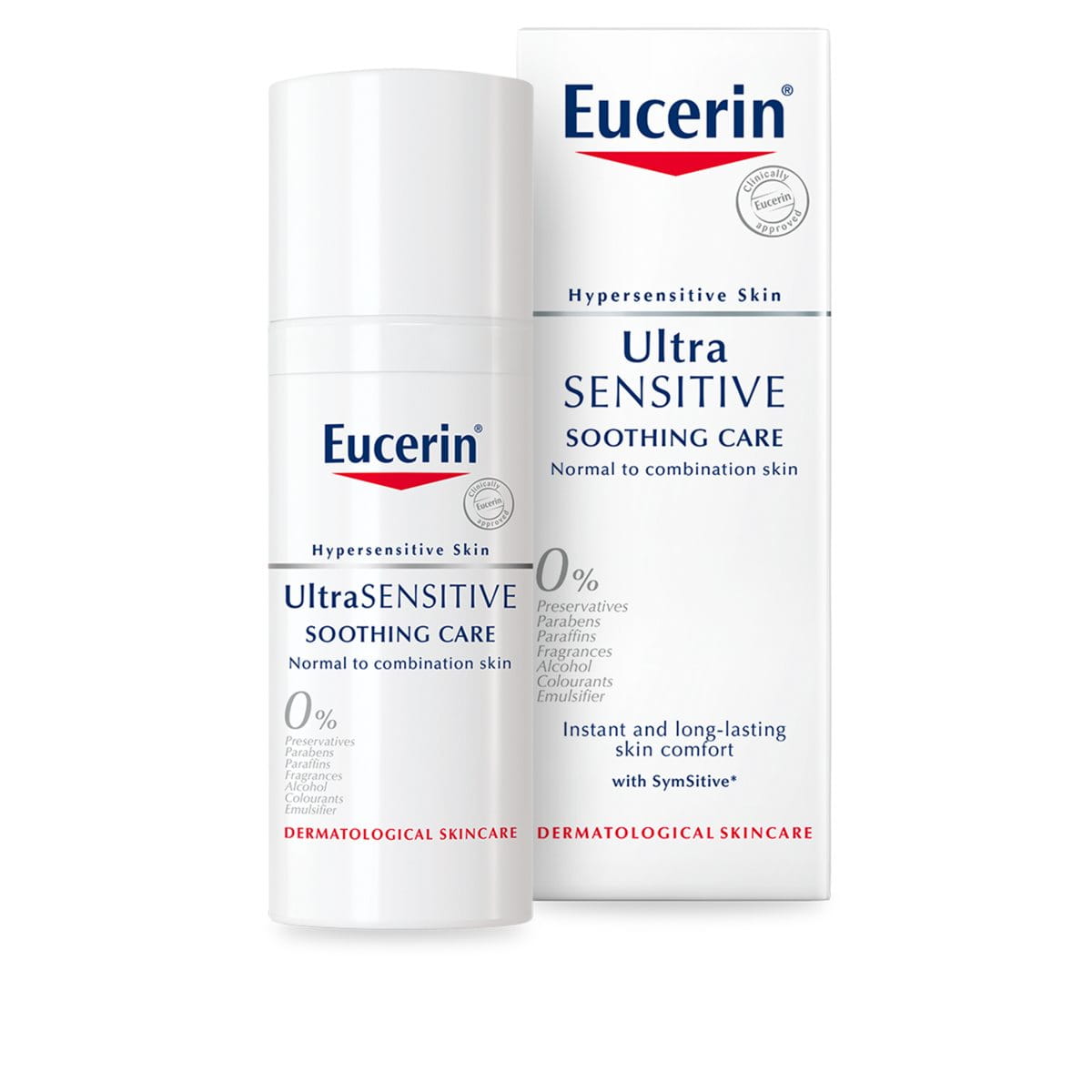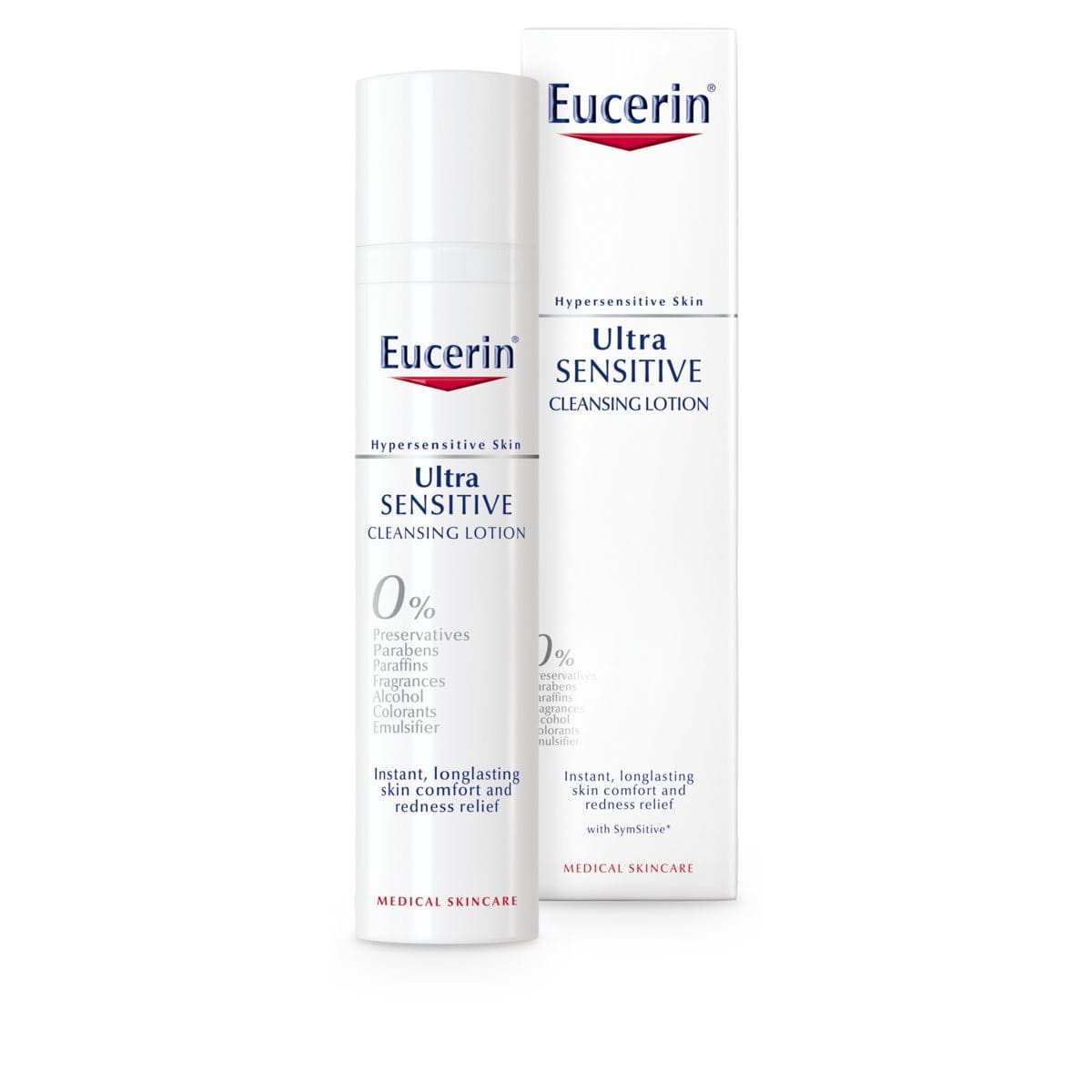Sunscreen For Hypersensitive Skin - Your Skin's Best Friend
Table of Contents
- Introduction to Sunscreen for Hypersensitive Skin
- Why Does Choosing Sunscreen for Hypersensitive Skin Matter So Much?
- What to Look For in Sunscreen for Hypersensitive Skin
- Mineral Versus Chemical Sunscreen for Hypersensitive Skin - What's the Difference?
- How Do We Know Which Sunscreen for Hypersensitive Skin Is Good?
- Sunscreen for Hypersensitive Skin - Face and Body Needs
- Do Kids Need Different Sunscreen for Hypersensitive Skin, and Is Sunscreen Ever a Problem?
- Making Daily Sunscreen for Hypersensitive Skin a Simple Habit
Finding a good sunscreen, especially when your skin reacts to almost everything, feels like a real challenge. For anyone with skin that gets easily upset, picking the right sun protection is not just about avoiding a sunburn; it's about keeping your skin happy and calm, too. You see, when your skin is extra delicate, the wrong product can bring on redness, itchiness, or a general feeling of discomfort, and that is really something no one wants.
We've looked at quite a few sunscreens over the years, more than a hundred, actually, over a period of about eleven years, and we’ve had people try them out. Our goal has always been to help folks find options that truly work well, particularly for those with skin that needs a bit more care. This means looking beyond just the SPF number and thinking about how a product feels, how it looks, and most importantly, how gentle it is on your skin, you know?
The best sun protection is the kind you'll actually put on every day, and often, without a second thought. So, it needs to feel pleasant and look fine on your skin. We're here to talk about what makes a sunscreen suitable for skin that's a bit more sensitive, helping you sort through the choices so you can find something that offers good defense against the sun's rays while also being kind to your skin, too it's almost.
- Post Nirvana
- Alex Chino Onlyfans
- Does Lol Superman Exist
- Denzel Washington Training Day
- Sophie Rain Leaked Nudes
Why Does Choosing Sunscreen for Hypersensitive Skin Matter So Much?
When your skin is what we call hypersensitive, it means it's more likely to react to things. This could be certain ingredients, the texture of a product, or even just the act of putting something on. So, for people with this kind of skin, picking sun protection isn't just a casual decision; it's pretty important. A product that might be fine for someone else could cause a lot of irritation for you, which is why we really focus on options that are designed to be very gentle, more or less.
The main job of sun protection is to shield your skin from the sun's powerful light, which can lead to sunburn and, over time, other skin issues. For sensitive skin, a sunburn can be extra painful and might even trigger a longer-lasting reaction. So, getting that protection right is a big deal. We're looking for sunscreens that offer good defense without making your skin feel worse, you know, just a little.
Think about it: if a sunscreen makes your skin sting, itch, or break out, you probably won't use it. And if you don't use it, it can't protect you. That's why the 'feel good' part of the equation is so important for sunscreen for hypersensitive skin. It needs to be something you're comfortable putting on every single day, without dreading it. That comfort helps make it a regular habit, which is really what we want, anyway.
- Benny Blanco Net Worth
- Two Babies And One Fox
- Two Babys One Fox
- Thanos Actor Age Squid Game
- Aishah Sofey Onlyfans Leaked
What to Look For in Sunscreen for Hypersensitive Skin
When you have skin that's easily upset, knowing what to look for in sun protection can feel a bit tricky. The goal is to find something that gives you strong protection from the sun's rays while also being very gentle on your skin. One key thing to consider is the type of ingredients used. Some sunscreens use physical blockers, which sit on top of your skin and reflect the sun, while others use chemical filters that absorb the sun's rays. For many with sensitive skin, the physical blockers tend to be a better choice, as a matter of fact.
You'll often hear people talk about "mineral" sunscreens when discussing options for delicate skin. These typically contain zinc oxide and titanium dioxide. These ingredients are usually well-tolerated because they don't get absorbed into the skin; they just sit on the surface. This means less chance of a reaction. When you're looking for sunscreen for hypersensitive skin, checking for these active ingredients can be a really good first step, obviously.
Beyond the main protective ingredients, it's also worth looking at what else is in the bottle. Things like fragrances, dyes, and certain preservatives can sometimes cause trouble for sensitive skin. So, finding options that are "fragrance-free" and "dye-free" is generally a good idea. Also, some sunscreens have added plant extracts or other compounds that might seem nice but could still irritate very delicate skin. Keeping the ingredient list simpler is often better for sunscreen for hypersensitive skin, basically.
The texture also matters quite a bit. A sunscreen that feels too heavy or greasy might clog pores or just feel uncomfortable, making you less likely to use it consistently. Lightweight options that spread easily and disappear into the skin without leaving a noticeable film are usually preferred. This helps ensure that the product you pick is one you'll actually use regularly, which is, you know, the whole point. Finding a sunscreen for hypersensitive skin that feels good is a significant win, pretty much.
Mineral Versus Chemical Sunscreen for Hypersensitive Skin - What's the Difference?
When you're trying to pick out sun protection, especially for skin that's easily bothered, you'll often hear about two main kinds: mineral and chemical. Knowing the basic difference between them can really help you make a good choice for sunscreen for hypersensitive skin. Mineral sunscreens, sometimes called physical sunscreens, work by creating a barrier on top of your skin. They use natural minerals like zinc oxide and titanium dioxide to literally block and bounce away the sun's rays. These are generally considered very gentle, so.
Chemical sunscreens, on the other hand, absorb the sun's rays once they hit your skin. They contain different compounds, such as oxybenzone, avobenzone, octinoxate, and octisalate, which create a chemical reaction that changes UV light into heat, which then leaves the skin. For some people, especially those with very sensitive skin, these chemical filters can sometimes cause a reaction, like redness or a bit of stinging. This is why many skin experts often suggest mineral options first for sunscreen for hypersensitive skin, you know.
The main reason mineral sunscreens are often recommended for delicate skin is because they sit on the skin's surface and aren't absorbed. This means there's less chance for an ingredient to get into your skin and cause an issue. They are also usually effective right after you put them on. Chemical sunscreens, by contrast, need about 20 minutes to fully absorb and start working. So, for a quick and gentle shield, mineral sunscreens often win out for sunscreen for hypersensitive skin, to be honest.
However, mineral sunscreens sometimes have a reputation for leaving a white tint on the skin, especially on darker complexions. Formulations have come a long way, though, and many newer mineral sunscreens are designed to blend in much better, leaving little to no white residue. It's about finding a product that offers that gentle protection without compromising on how it looks or feels. Ultimately, the best choice for sunscreen for hypersensitive skin is the one that your skin likes and that you'll use consistently, as a matter of fact.
How Do We Know Which Sunscreen for Hypersensitive Skin Is Good?
Finding sun protection that truly works for skin that gets easily upset isn't something you can just guess at. It takes a lot of looking and trying. Over more than a decade, we've put over a hundred different sunscreens through their paces. We didn't just look at what was on the label; we actually had groups of people try them out in real life. This helps us get a true sense of how they perform, especially for sunscreen for hypersensitive skin, too it's almost.
When we test sunscreens, we're not just checking if they prevent sunburn. We're also paying close attention to how they feel on the skin. Does it feel heavy? Does it make your skin feel tight or itchy? Does it leave a strange residue? For someone with delicate skin, these everyday experiences are just as important as the sun protection factor itself. A product might offer great sun defense, but if it makes your skin uncomfortable, it's not a real solution, you know?
We also talk to skin care professionals, like dermatologists, to get their thoughts. These experts see all sorts of skin types every day, and they often have a very good idea of which ingredients and formulations are most likely to be gentle and effective for sensitive skin. Their insights are super valuable in helping us figure out what might be a good fit for sunscreen for hypersensitive skin. It's a way of getting advice from people who really know their stuff, pretty much.
The whole point of this careful checking is to help you avoid the trial-and-error process that can be so frustrating and uncomfortable for sensitive skin. We want to point you towards options that have a better chance of working well for you, providing good sun protection without causing any extra skin worries. It's about making the choice simpler and more reliable for sunscreen for hypersensitive skin, you know, kind of.
Sunscreen for Hypersensitive Skin - Face and Body Needs
When you're thinking about sun protection, it's easy to assume one product works for everything. But for skin that's easily bothered, what you put on your face might need to be a little different from what you put on your body. Your face, for one, is often more exposed to the sun every single day, not just when you're at the beach. Plus, the skin on your face is generally thinner and more delicate than the skin on your arms or legs, so.
For your face, especially if you have sensitive skin, you'll want something that's very light and won't clog your pores. Products designed for the face are often non-comedogenic, meaning they're less likely to cause breakouts. They also tend to be formulated to blend in well, so they don't interfere with makeup or leave a noticeable white film. Finding a face sunscreen for hypersensitive skin that feels invisible is a real plus, as a matter of fact.
For your body, you might be able to use a slightly thicker or more water-resistant formula, especially if you're going to be sweating or swimming. Even so, if your body skin is also sensitive, you'll still want to stick with fragrance-free, gentle options. The key is that the body sunscreen for hypersensitive skin should still be comfortable and not cause any irritation, just like your face product. It's about finding that balance, you know.
Ultimately, the best sun protection for your face is the one you'll actually use every single day, no matter what. For your body, it's the one you'll put on liberally and often when you're out in the sun. So, while there might be some differences in formulation, the core idea remains the same: it has to feel good and be kind to your skin, making it easy to make sun protection a consistent part of your routine for sunscreen for hypersensitive skin, pretty much.
Do Kids Need Different Sunscreen for Hypersensitive Skin, and Is Sunscreen Ever a Problem?
When it comes to little ones, their skin is even more delicate and prone to irritation than adult skin. So, yes, kids often do need sun protection that's a bit different, especially if they have sensitive skin. For babies under six months, it's usually recommended to keep them out of direct sunlight entirely. For older kids, mineral sunscreens with zinc oxide and titanium dioxide are often the top choice. These are generally seen as the gentlest option for their very sensitive skin, you know.
You might also wonder if sun protection itself can be harmful or "toxic." This is a concern many people have. The good news is that for most people, the benefits of using sun protection to guard against sunburn and other skin issues far outweigh any potential worries. When it comes to sensitive skin, choosing mineral-based formulas helps avoid many of the ingredients that some people find irritating. It's about making informed choices for sunscreen for hypersensitive skin, you know, kind of.
There's also the question of whether using a very high SPF, like SPF 100, makes a big difference. While a higher SPF does offer slightly more protection, the jump from, say, SPF 30 to SPF 50 or 100 isn't as dramatic as you might think. SPF 30 blocks about 97% of UVB rays, while SPF 50 blocks about 98%. The most important thing, especially for sensitive skin, is to apply enough sun protection and reapply it often, regardless of the SPF number. That consistent use is what really counts for sunscreen for hypersensitive skin, in a way.
Some people worry about certain ingredients in sunscreens, but regulatory bodies constantly review these. For those with hypersensitive skin, sticking to products that are free of common irritants like fragrances, dyes, and certain preservatives can ease many of these concerns. It's about finding a formula that your skin tolerates well, ensuring you get the protection you need without any unnecessary discomfort. This careful selection is key for sunscreen for hypersensitive skin, basically.
Making Daily Sunscreen for Hypersensitive Skin a Simple Habit
The truth about sun protection, especially for skin that's easily bothered, is that the best one out there is the one you'll actually use every single day. It doesn't matter how great a product's sun protection factor is if it sits in the cabinet because it feels bad or causes a reaction. For people with sensitive skin, comfort and a good feel are absolutely key to making sun protection a regular part of their routine, you know.
Making it a habit means finding a product that melts into your skin, doesn't leave a white film, and doesn't sting or itch. This is why testing different options, even small samples, can be really helpful. You want to find that perfect match that you don't even think about putting on. When it feels like just another step in your morning routine, like brushing your teeth, that's when you know you've found a winner for sunscreen for hypersensitive skin, pretty much.
Remember, sun protection is a topical product for your skin that works to guard against sunburn and helps keep your skin healthy in the long run. It's a simple, yet very important, tool in your skin care arsenal. So, take the time to find the sun protection that makes your sensitive skin feel good and look good, too. That consistency is what truly provides the protection you need, every single day, as a matter of fact.
Whether it's for your face, your body, or for the little ones in your life, choosing sun protection for hypersensitive skin means prioritizing gentleness and comfort alongside effective sun defense. By focusing on mineral options, avoiding common irritants, and finding a texture you love, you can make sun protection a simple and positive part of your daily life, you know, just a little.
- What Does The Term Eiffel Tower Mean
- Thanos Actor Age Squid Game
- Many Summers Later Gravity Falls
- Froot Cheating
- Exploring Malachi Bartons Relationships The Young Stars Personal Connections

Hypersensitive Skin

Eucerin: Hypersensitive skin | Dermo care for hypersensitive and

Eucerin: Hypersensitive skin | Dermo care for hypersensitive and